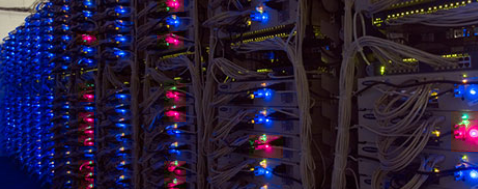Could Internet filtering cause more harm than good?

Countries around the world are steadily rolling out filtering systems which block citizens from viewing child abuse imagery. With the United Kingdom and New Zealand with independent filters in place, and Australia potentially soon after, Internet censorship is becoming common practice across the world.
What many don't realise is the true extent of governmental filtering across the web.
I take on two perspectives here. One, I am a godfather of two beautiful little children which I would gladly take a bullet for. Two, I worked albeit for a relatively short time in the child protection sphere. While children frankly drive me up the wall, my views and opinions on keeping them safe could well be considered controversial to the vast majority of Republicans and Daily Mail readers.

Australia is a tricky one. Because of their legislative power running through a two-chamber system, their present government cannot push through enough votes to secure the filter being activated. As of today, it is very unlikely the filter will go ahead until more votes are drawn in in the next general election, in favour of the Rudd cabinet.
But looking at the broad spectrum of governmental filtering across nations, the one and main reason these vast Internet filters seem to want to accomplish is the reduction in access to child sexual abuse imagery. All good and well, you would say.
From a professional point of view, paedophilia is an illness; a genuine psychological condition which causes a sexual interest in children, whereas a convicted child sex offender (CCSO) is a branding caused by a consciously committed offence against a child of a sexual nature. One is an illness and poses a potential risk to children, whereas the other is a branding of conviction caused by someone who acted upon their desires.
The two sides to these filters is firstly by reducing (with the aim of entirely removing) the chance of a citizen being exposed to child sexual abuse imagery, and the other is to prevent people seeking out child sexual abuse imagery to satisfy their urges. Both are preventative measures, but the latter is something which cannot be avoided without medical intervention.
The filter would not deter paedophiles or CCSO's from indulging in their desires. The World Wide Web has been around for nearly two decades, but anthropologically speaking in Western society, these crimes would have been accomplished without the aid of an international network of computers. In some areas of the world, what we would call crimes are societal normality's and even though we would be horrified to see it, their society dictates differently.
Point being, removing access to child sexual abuse imagery online would not deter those who are determined enough. Previous non-offenders could potentially seek out children in their determination to fulfil their need and drive the issue underground and away from law enforcement.
Even though every time a child sexual abuse image is viewed, it essentially perpetuates the abuse further, but one could argue that physically assaulting a child is somewhat in an entirely different league to the aforementioned.
This aside, Internet filtering around the world is far more widespread than the average user thinks. For example:
- United Kingdom has Cleanfeed - provided by the Internet Watch Foundation (IWF) to identify child sexual abuse imagery and provides a simple 404 error message. ISP's can if they wish use their own systems.
- Norway provides a DNS filter which blocks access to child sexual abuse imagery deemed so by the regulatory authorities.
- Germany asked Google.de to block access to anything which is deemed to incite Nazi propaganda, which is somewhat appropriate due to the country's history.
- The Czech Republic passes not only Internet but mobile web traffic through the UK's Cleanfeed system.
In the US, because of the First Amendment, Internet filtering would be considered a violation, whereas some would consider the DMCA an act of filtering to remove content which is deemed copyright.
So a simple question to ask you, the audience: could Internet filtering at governmental level cause more harm than good?
Because of Pandora's Box theory - once something happens, it can never be undone and is no doubt deemed to repeat itself in the future. Where does it stop? Should the Internet be entirely monitored and blocked to ensure the safety of its users? When is Internet filtering an abuse of governmental power, and how should it be regulated?
One thing is for sure, and that is the Internet cannot be open and fully accessible for everyone with what we see and experience in post-modern society.
Comment away. It will be interesting to see where this one goes.